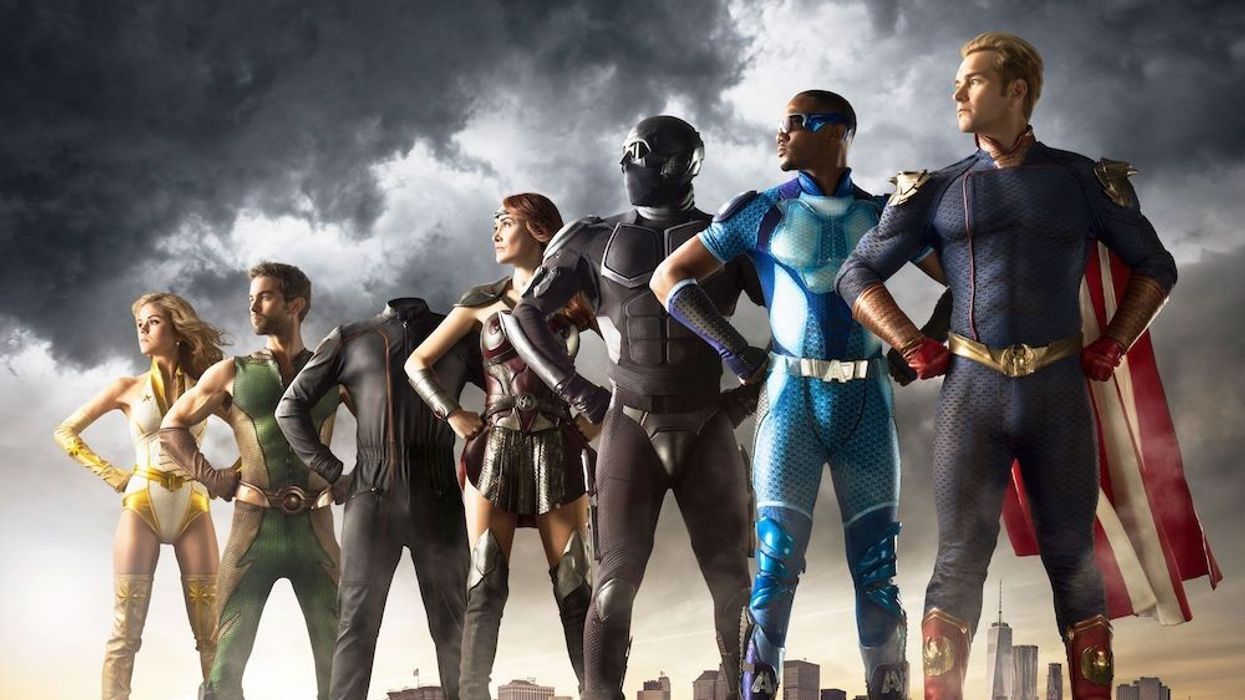Read and Download 'The Boys' Pilot Script
Subverting the superhero genre has never been so funny.

In a world where superheroes are kind of a pain to modern society, The Boys storms onto the screen with an unapologetic take on the genre, and lots of memorable scenes you'll be texting your friends about the moment they happen.
This series shatters the polished veneer of caped crusaders, revealing a dark underbelly of corruption, corporate greed, and moral ambiguity. The pilot script serves as a masterclass in screenwriting, delivering lessons that challenge conventions and redefine storytelling in the superhero realm.
Written by Eric Kripke and based on the graphic novel by Garth Ennis and Darick Robertson, the show is wildly entertaining and a really smart genre deconstruction.
The Boys | Season 1 - Official Trailer | Amazon Originalwww.youtube.com
Read and Download 'The Boys' Pilot Script
- The Boys pilot script -- written by Eric Kripke
3 Screenwriting Lessons from the 'The Boys' Pilot Script

'The Boys'
Credit: Amazon Studios
Now that you've read the pilot, here are three big lessons I took away from it as a writer. The first is kind of a no-brainer.
1. Subverting Expectations: The Boys excels at subverting the typical superhero tropes. It portrays superheroes as corrupt and morally compromised individuals, which is something we have not seen on TV. As writers, we cannot be afraid to challenge conventions and surprise the audience. Subverting expectations can make your story more engaging and memorable.
2. Complex Characters: The pilot script introduces a cast of complex and morally ambiguous characters who we immediately want to know more about. Each character has their own motivations, flaws, and internal conflicts. Whether it's the vengeful Billy Butcher or the conflicted Hughie Campbell, the characters are multi-dimensional and relatable. It's so important to create well-rounded characters with depth and nuance. Audiences connect with characters who feel real and have their own internal struggles.
3. Dark Humor: This show blew me away because there was no topic that felt off-limits and they poked fun at everything. And it was able to joke about real-world issues such as celebrity culture and corporate influence. Humor can be a powerful tool in storytelling, even in darker genres. Consider how dark comedy can enhance your story and themes.
As you embark on your own creative journey, remember these valuable screenwriting lessons and take them into your own work.
Challenge conventions, craft multi-dimensional characters, and embrace humor and satire when it serves your narrative.
Now go get writing!
- How 'The Boys' Exposes What's Wrong with Superhero Culture ›
- "The Boys" Trailer: People Are Getting Tired of Superheroes (Sort of) ›
- Five Questions Your TV Pilot Should Answer ›











